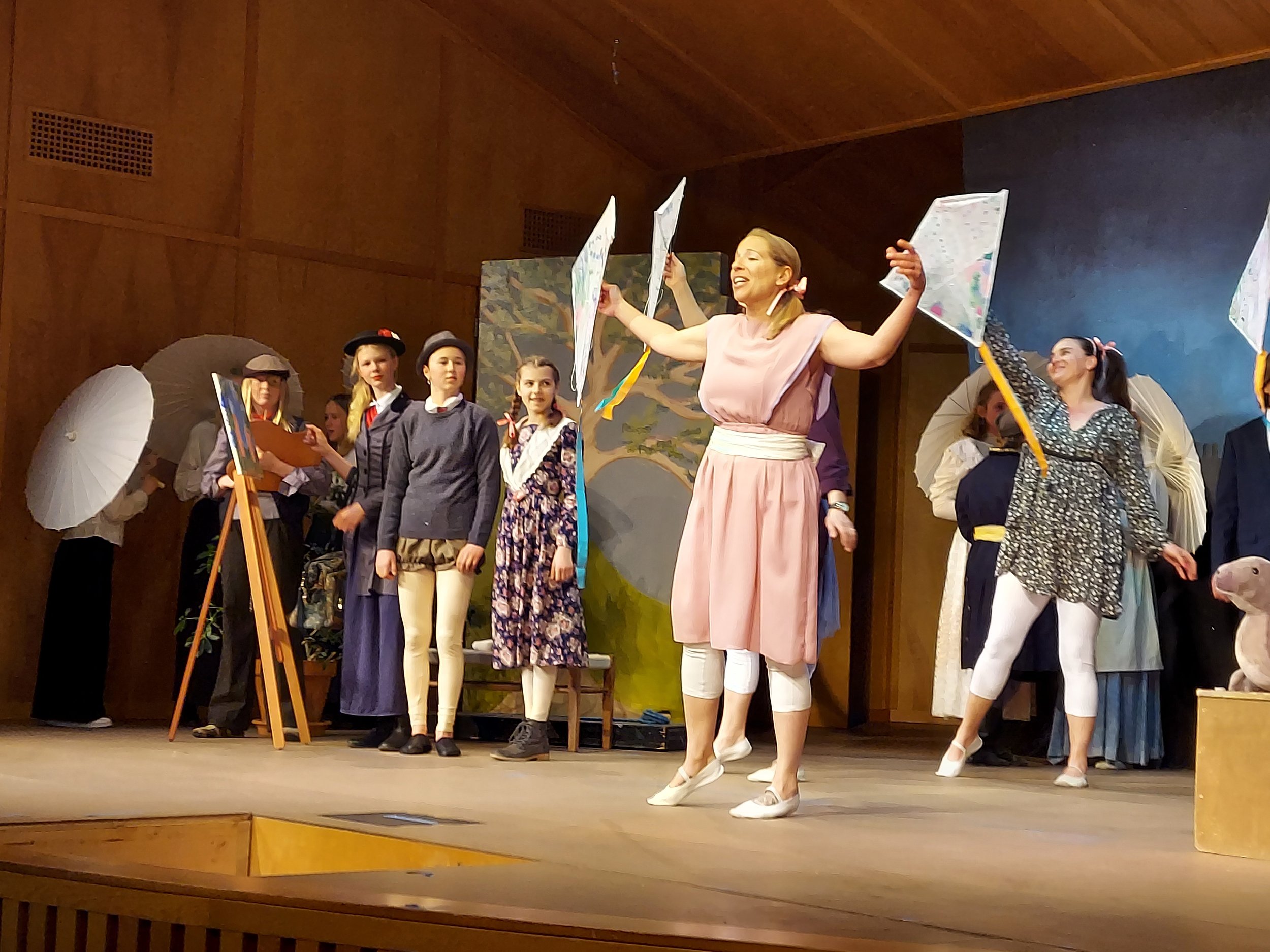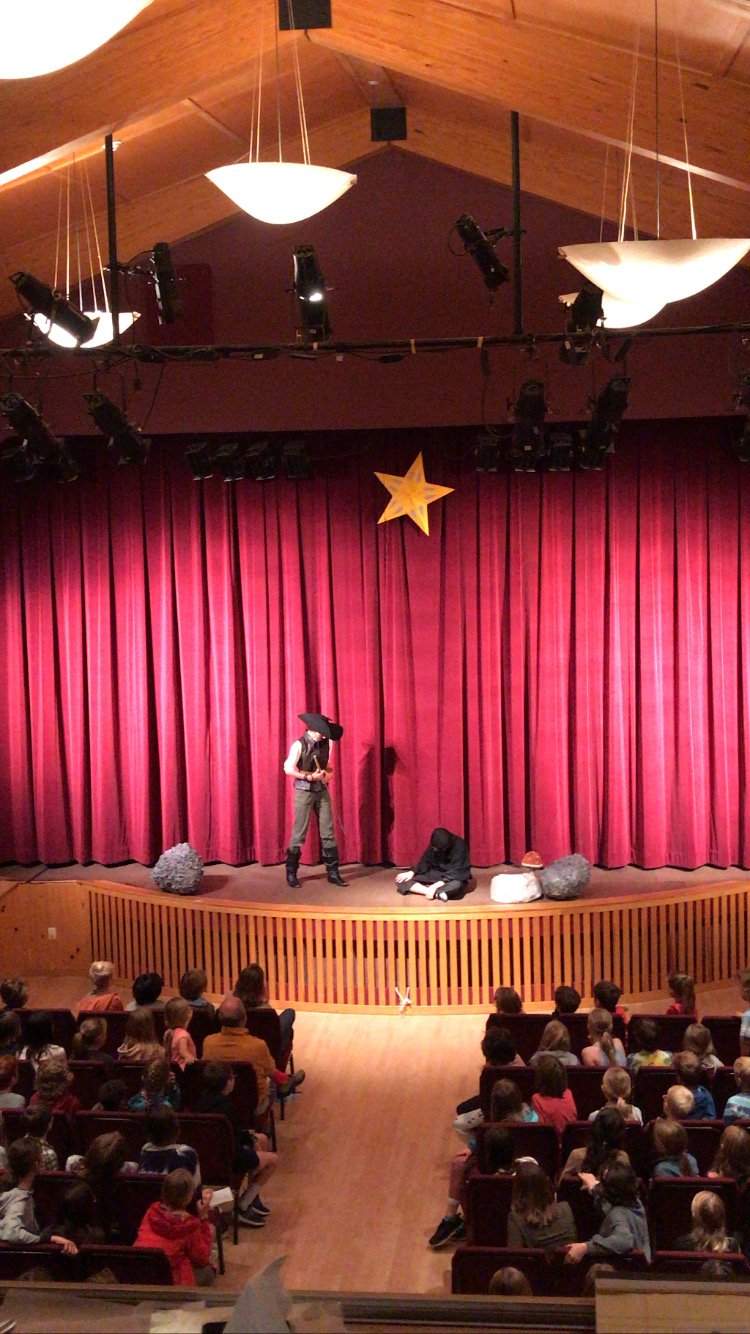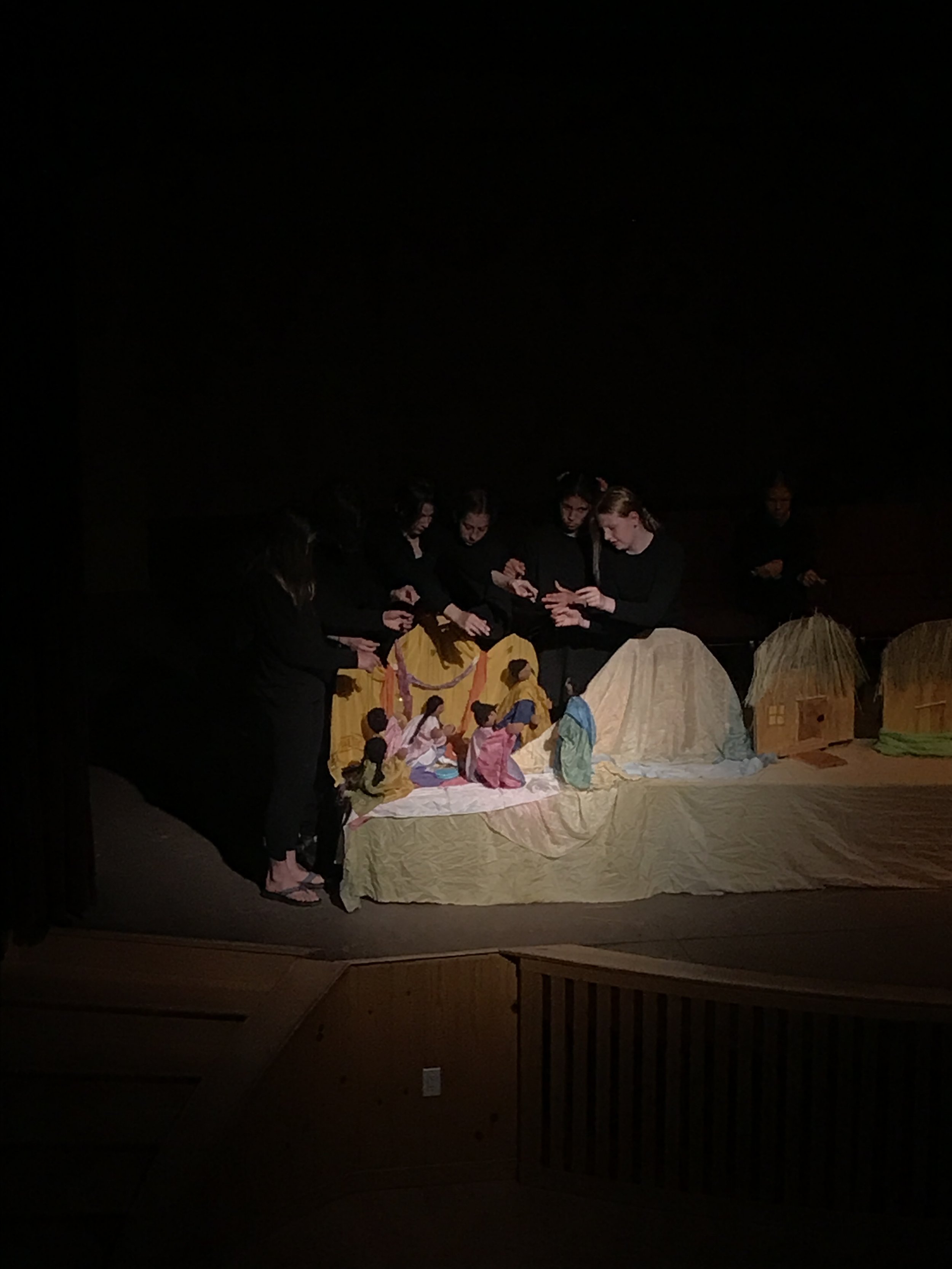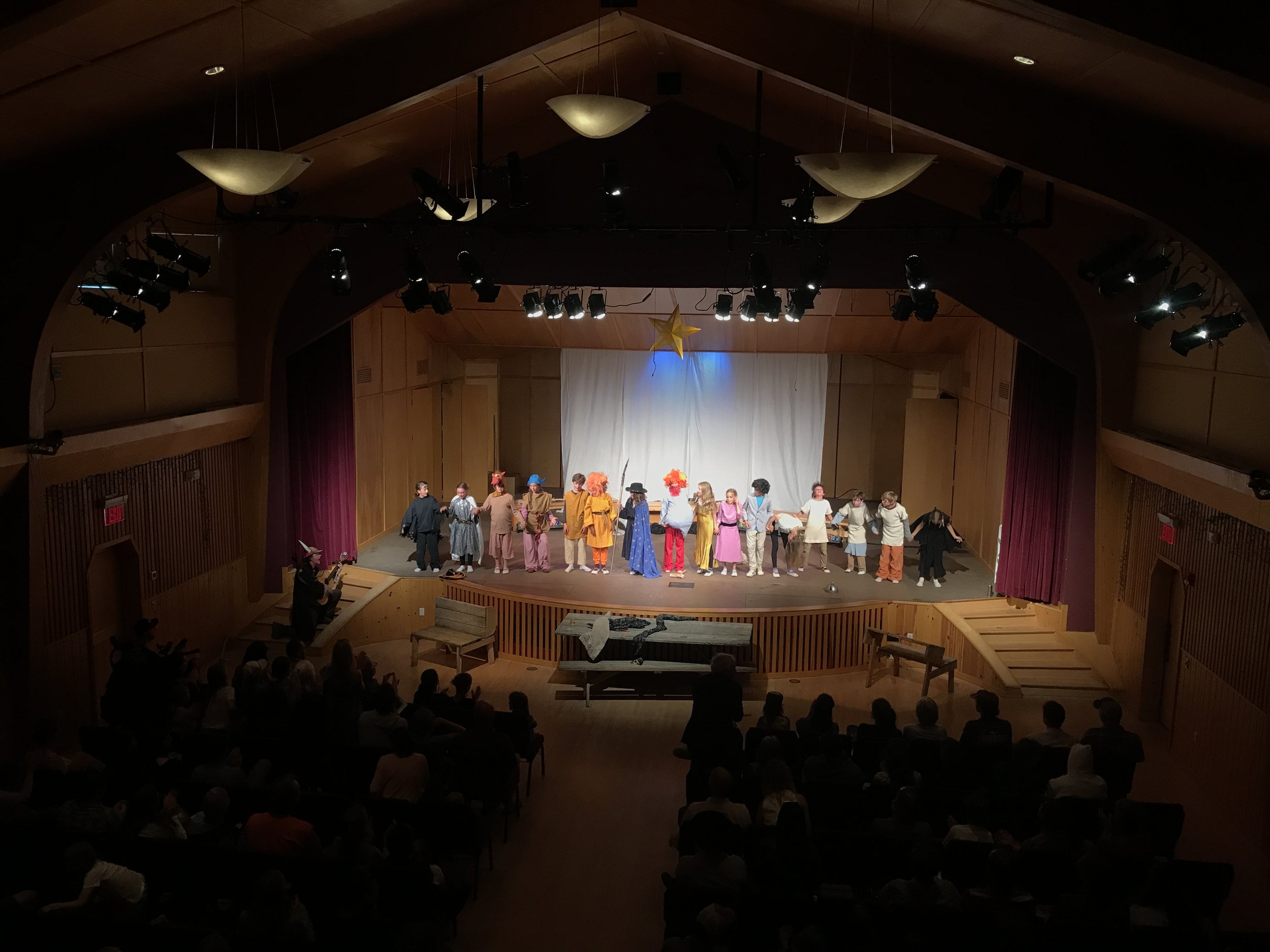Program Spotlight: Yearly Class Plays
Each year, starting in 1st grade, our students work incredibly hard to present a class play to the entire school community and their families. The class play if often the highlight of the year for many students and productions steadily increase in complexity. Eventually culminating in a Shakespeare play by the 7th or 8th Grade or a work of equal challenge. The plays chosen directly link to the academic studies a class has been engaging with during the school year. Thus the play serves as a chance to bring academics and concepts to life. Students are challenged to not only learn lines and navigate nerves to present on our stage but also work together as a class in intense collaboration with their teachers and peers.
This may seem on first glance like a fun, expressive experience for students but the reality is, the impact goes much deeper. “After all, research shows that children who sing/dance/act/play are four times more likely to be recognized for academic achievement compared with their non-performing friends — and they tend to have enhanced cognitive, motor, and social development to boot.” (Source). The benefits don’t stop there…..
Supports Quick Thinking and Creativity:
Everyone knows a performance never goes perfectly as planned. The result is countless moments during a performance for students to think on their feet and work together to make sure that the show goes on! By being challenges to improvise, leverage teamwork and find creative solutions, students build their capacities for on the fly creative problem solving. What’s more, they gain comfort in both making mistakes and trying something new. As Lisa Lollar, Psy.D., a psychologist in Denver, CO, who works with performing artists notes, “If you help your child define success as being willing to try something new, the idea of messing up isn’t so scary.” (Source) This opportunity to adapt and be flexible directly supports creative thinking and requires thinking out of the box and finding unexpected, creative solutions.
Supports Emotional Expression and Empathy:
The chance to step into someone else’s shoes provides a unique opportunity for emotional release and expanded perspectives. Students who struggle to express and process emotions can often find opportunities to use the character they are playing as an intermediary through which to open up. “It is a very safe way for kids to try out certain feelings — and take ownership of them — while playing the role of someone else,” says Brian Olkowski, who runs a summer theater program for children. “I’ve worked with shy kids who are able to blossom on stage and express themselves in a way they aren’t comfortable doing around their peers.” (Source)
Additionally, playing the role of someone else helps expand perspectives and build empathy in students of all ages. “They learn to put themselves in someone else’s shoes,” says Jessica Hoffman Davis, author of Why Our Schools Need the Arts. “In performing the part of someone else, they learn what it’s like to think like that other person.” This capacity is incredibly valuable for navigating a slew of circumstances in higher education, workplaces, personal relationships and more. Building empathy build human connections which directly support long term health and wellbeing.
Supports Confidence and Decreased Anxiety:
They say “practice makes perfect” but in reality, practice builds confidence. Repeated and consistent opportunities for students to perform, public speak and present builds a foundation of practice that in turn, directly supports confidence in their abilities. Students prove to themselves over time that they are capable, both as individuals and as a connected system, of tackling the immense challenge that is a class play production and performance. Even if mistakes are made, students learn to trust their ability to adapt, be flexible and think on their feet. “During a performance, kids become part of a larger system, working toward a common goal. It is the culmination of weeks of practice, so the performance itself becomes the reward for all that work” says Annie Spell, Ph.D., a child psychologist in Lafayette, LA, and co-creator of Leap ’N Learn for the Classroom, a movement program for kids. (Source)
This practice in turn, can decrease levels of anxiety around performance and public speaking. By building a foundation and bank of experience, students learn to trust themselves and can lean on past examples to lower anxiety levels when it comes time to step on stage or share in-front of peers. Teachers and parents can then remind students of their past successes when nerves naturally arise. Over time, as confidence builds in skills, anxiety can decrease.
Where else do you find public speaking Waldorf Education?
In addition to class plays, students have many opportunities during the course of the year to perform and present. This includes more informal opportunities such as sharing recent work in all school assemblies for their fellow classes or presenting at regular community assemblies in the winter and spring. Music performances, individual research projects starting in 4th grade and 8th grade projects all provide additional chances for students to hone their presentation skills and build confidence in public speaking.
This natural integration of something notoriously scary for adults builds our students confidence and nurtures graduates with impressive and fine tuned public speaking capacities. A skill that comes in handy in everything from high school and college to job interviews and the workplace.
What skills will you equip your student with for the future? Ready to start a conversation with enrollment? Reach out today and discover the difference with Waldorf Education.






